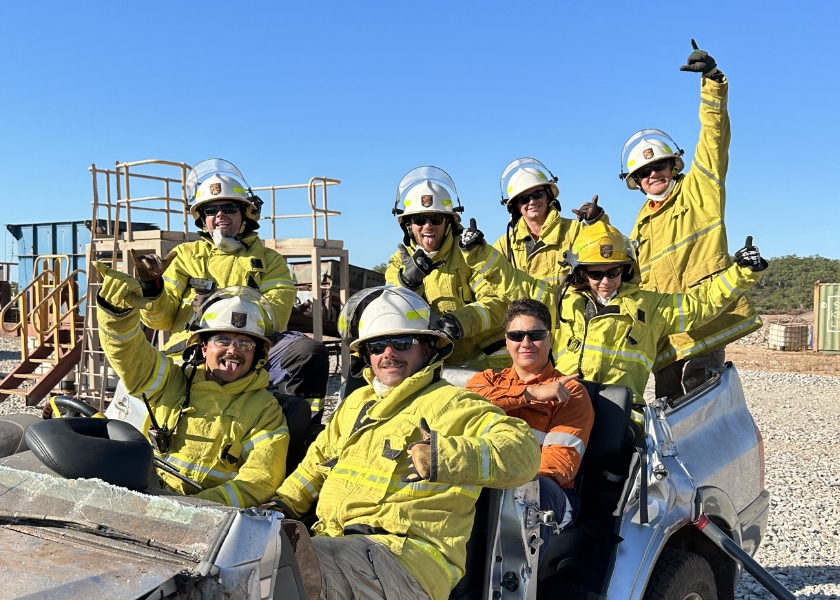In the modern world, organisations must be prepared to handle an array of crises, ranging from natural disasters to human-made catastrophes. Effective crisis management requires not only robust planning but also the development of specific skills that enable leaders and responders to navigate these tumultuous events with confidence and precision. At Riklan, we offer comprehensive emergency management courses designed to equip you with these critical skills, ensuring that you are well-prepared to face any crisis.
Understanding Crisis Management
Crisis management involves identifying potential threats, preparing for them, and executing an organised response to mitigate their impact. It is a multifaceted process that demands a combination of strategic planning, real-time decision-making, and effective communication. Organisations that excel in crisis management can protect their reputation, maintain stakeholder trust, and ensure business continuity even in the most challenging circumstances.
The Importance of Emergency Management Courses
Emergency management courses provide the foundation needed to develop the skills essential for effective crisis response. These courses cover a wide range of topics, including risk assessment, crisis planning, and incident management. By participating in these courses, individuals and organisations can ensure that they are ready to respond to crises efficiently and effectively.
Key Skills for Effective Crisis Management
Situational Awareness
Situational awareness is the ability to understand the context of a crisis as it unfolds. This skill involves assessing the relevance and completeness of available information, anticipating potential consequences, and making informed decisions. Leaders with strong situational awareness can distinguish crucial data from irrelevant details, enabling them to minimise the impact of the crisis.
Improvisation
In many crisis scenarios, the initial plan may prove ineffective. Improvisation is the ability to adapt quickly and develop alternative strategies on the fly. This skill is crucial when dealing with novel or unpredictable events where predefined plans are insufficient. Effective crisis responders can devise new plans and adjust their approach as the situation evolves.
Creativity and Adaptability
Creativity and adaptability go hand-in-hand with improvisation. These skills allow leaders to think outside the box and implement innovative solutions in response to dynamic conditions. By remaining flexible and open to new ideas, crisis managers can pivot as needed and address emerging challenges effectively.
Decisiveness
Decisiveness is the ability to make quick, informed decisions under pressure. In a crisis, delays can exacerbate the situation, making prompt decision-making essential. Leaders must be able to choose a course of action swiftly, even as new information becomes available, and be willing to reevaluate and adjust their decisions as necessary.
Action
Taking decisive action is fundamental to effective crisis management. Leaders must demonstrate the ability to implement their plans and guide their teams through the execution process. This involves not only making decisions but also ensuring that those decisions are carried out promptly and efficiently.
Effective Communication
Clear and effective communication is critical during a crisis. Leaders must be able to convey important information to all relevant parties, including employees, stakeholders, and the public. This communication should be timely, accurate, and concise to prevent confusion and ensure that everyone understands their roles and responsibilities.
Reevaluation
Reevaluation is the continuous process of assessing the effectiveness of the crisis response. Leaders must regularly ask, “How are we doing?” and “What are we missing?” to identify areas for improvement. This ongoing assessment helps to ensure that the response remains effective and that any necessary adjustments are made promptly.
The Role of Emergency Management Courses
At Riklan, our emergency response courses are designed to develop these essential skills in participants. Our comprehensive training programs cover all aspects of crisis management, from initial planning to real-time response and post-crisis evaluation. By enrolling in our courses, you will gain the knowledge and practical experience needed to excel in crisis situations.
Course Highlights
Risk Assessment and Management
Learn how to identify potential risks and develop strategies to mitigate them. This includes understanding the types of crises that can occur and the best practices for preparing for and responding to these events.
Crisis Response Planning
Develop detailed crisis response plans that outline the steps to be taken in various scenarios. These plans ensure that your organisation is prepared to handle any crisis effectively.
Incident Management
Gain hands-on experience in managing incidents as they occur. This includes real-time decision-making, coordination of resources, and effective communication with all stakeholders.
Communication Strategies
Learn how to communicate effectively during a crisis. This includes crafting clear and concise messages, using various communication channels, and managing the flow of information to prevent misunderstandings.
Continuous Improvement
Understand the importance of re-evaluation and continuous improvement in crisis management. Learn how to assess your response efforts and implement changes to improve future performance.
Safety And Resilience For Organisations
At Riklan, we understand the critical role that effective crisis management plays in ensuring the safety and resilience of organisations. Our emergency response courses are designed to equip you with the essential skills needed to navigate crises confidently and competently. By investing in these skills, you can protect your organisation, maintain business continuity, and emerge stronger from any crisis. Contact Riklan today to learn more about our emergency management courses and how they can benefit your organisation.

